Mediator In Animal Adoptions Faces Backlash Over Cat's Misrepresented Health And Age
We're here with a Reddit post from the AITA thread that you know we all love to go through. These threads are pretty interesting to read because people come there prepared with their perspectives and opinions on the particular situation at hand.
We really like seeing what everyone's opinions are and how they voted on the OP's situation, which is why you'll often see us cover these posts. With that being said, we're diving into a situation submitted by a person who wants to know if they're in the wrong for accidentally giving the wrong information to someone who bought a cat through them.
This person isn't necessarily a professional or anything; they are the middleman when it comes to people buying pets. The customer is very upset because the cat is older than they were told, and the cat also has medical conditions that were not disclosed prior to the sale.
So, OP has come here to see if they are in the wrong for this misinformation getting out or if it was an honest mistake. If you're interested in seeing the full post and hearing more about what they all have to say, then keep on reading as we dive in and give you a full look into the post and some of the best comments.
OP's post is short and to the point. They explain everything from beginning to end and ask if they are wrong for the information being wrong.
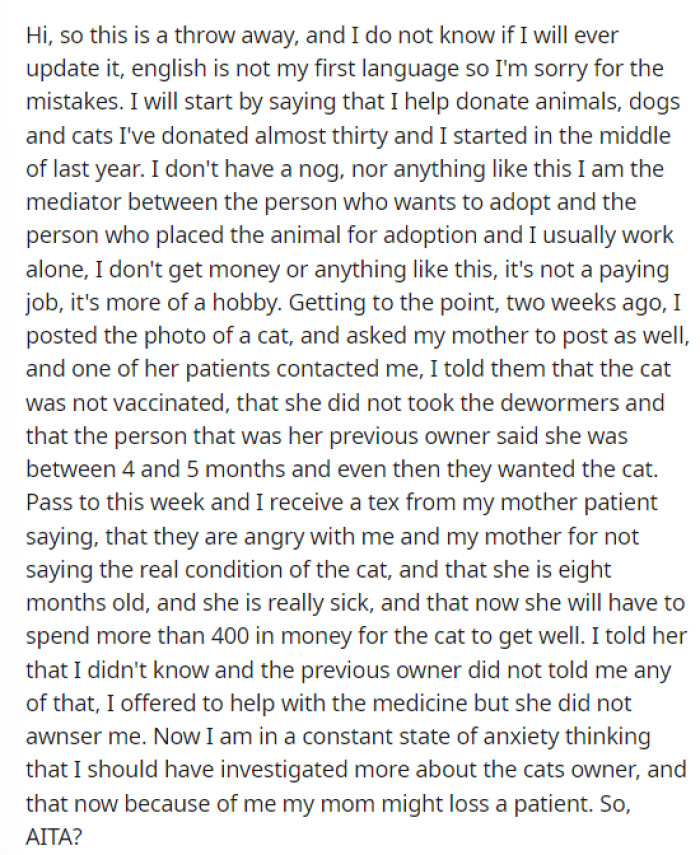
People weren't exactly forgiving in the comments, and they really called OP out on not being regulated and helping in ways that might not be legal.
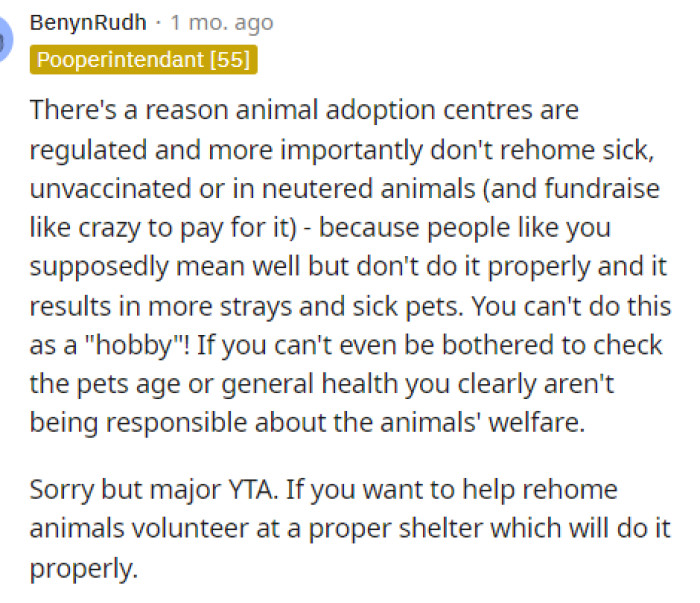
OP actually responded to the comment above, but people still weren't happy because it did get a few downvotes.
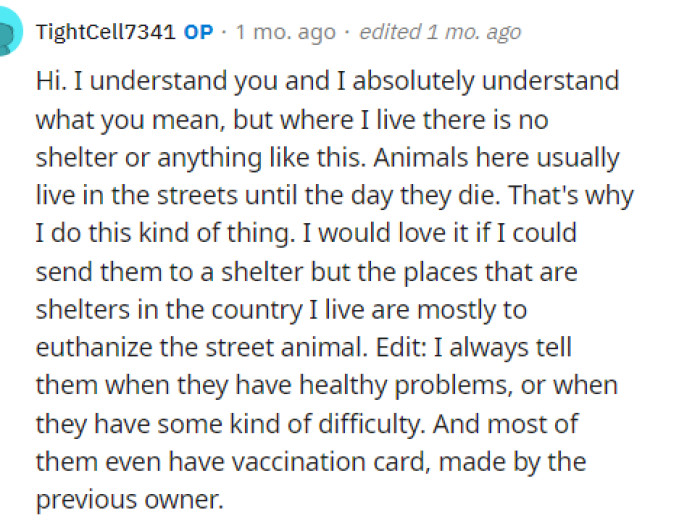
Ethics in Animal Adoption
Dr. Clara Jensen, an animal behaviorist at the University of California, Berkeley, discusses the responsibility that comes with animal adoption.
Her research highlights that misrepresenting an animal’s health or age can lead to a breakdown of trust between the adopting family and the adoption agency.
This breach can have serious implications not only for the animal's well-being but also for the emotional health of the family involved.
It definitely seems like people are not on OP's side, and they are very concerned with the fact that they are doing this unregulated and without any actual evidence of getting animals from reputable sources.
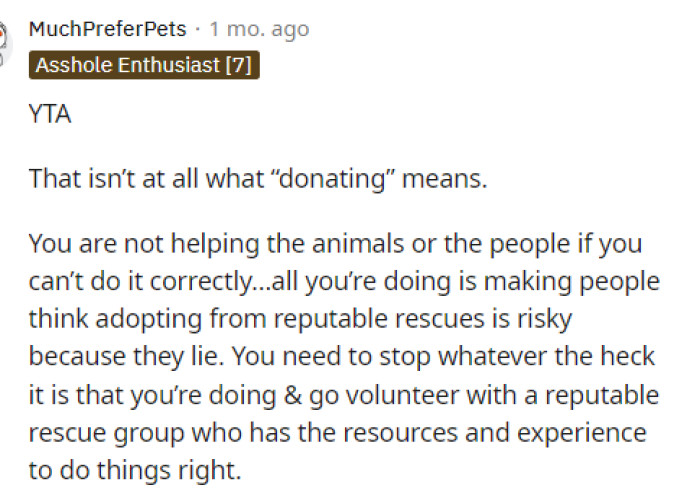
Some people tried giving OP the benefit of the doubt regarding the decision they made about the animals.
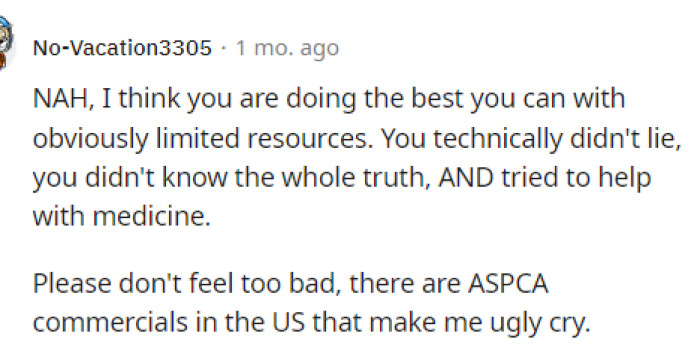
People are a little conflicted in the comments, and opinions on the situation are jumping in all over the place.
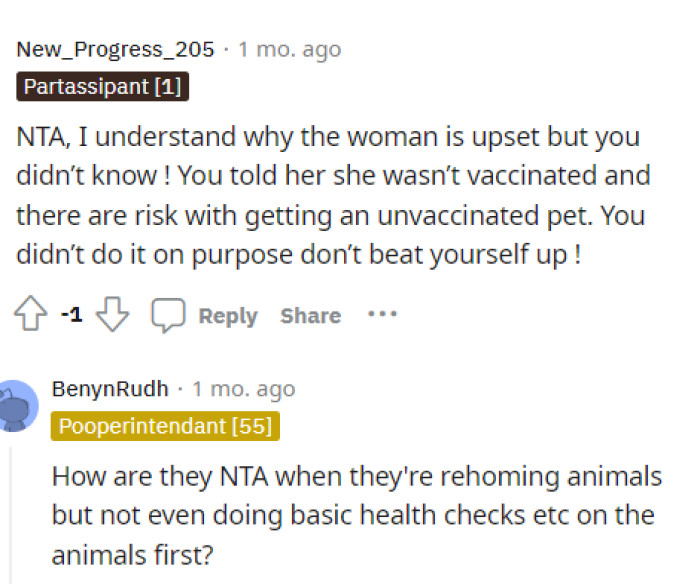
Studies in ethics and animal welfare emphasize the importance of transparency in the adoption process.
According to a research article in the Journal of Animal Ethics, clear communication about an animal’s needs and characteristics is essential to ensure suitable matches between pets and families.
Without this, families may find themselves ill-equipped to handle the realities of pet ownership.
OP responded to the comments above to explain a bit more of their perspective and why they aren't doing things that they are "supposed to be doing" when it comes to animal adoption.
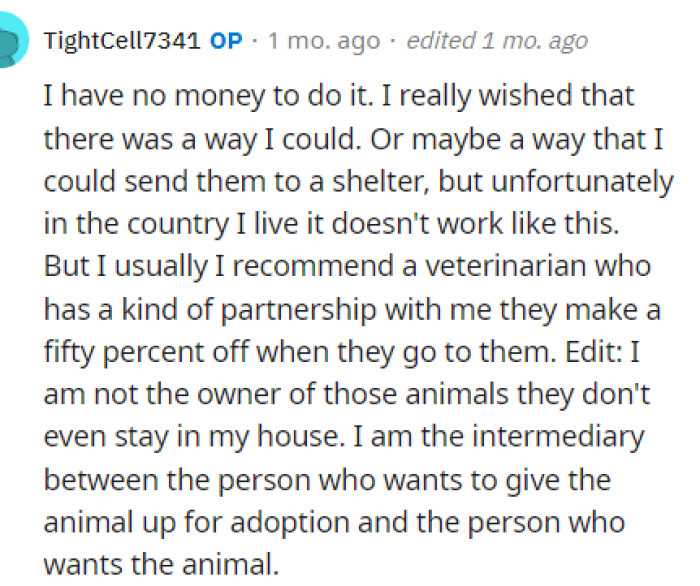
Some people definitely feel like OP is NTA here because they are just the middleman when it comes to the adoption, and so they're not legally required to do anything regarding the health of the animals.
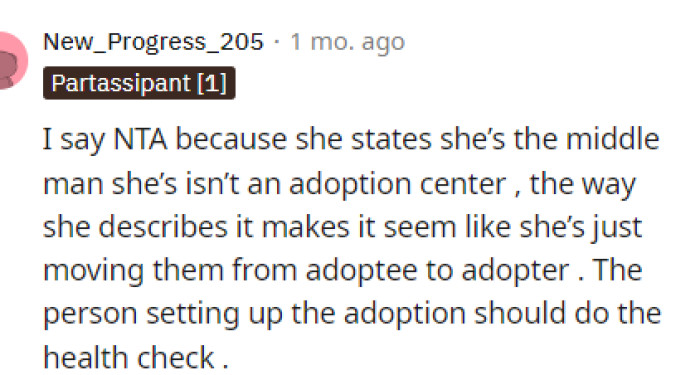
Well, the comments on this one don't really seem to be aligning in OP's favor, and we can completely understand why. There are usually regulations for things like this, which help to protect when something like this happens, but without regulations, there is no protection.
After reading this full post, what is your opinion on this situation, and do you think that OP is wrong?
Psychological Analysis
This situation underscores the importance of ethical responsibility in pet adoption practices.
From a psychological perspective, trust is foundational in any relationship, including that between adopters and adoption agencies.
Analysis generated by AI
Analysis & Alternative Approaches
Ethical practices in animal adoption are critical for the well-being of both animals and their human companions.
According to Dr. Ramani Durvasula, a clinical psychologist, "Fostering trust through transparency is essential in any relationship, including that between adopters and adoption agencies." This sentiment underscores the importance of clear communication in enhancing the adoption experience.
Ultimately, transparent dialogue serves to benefit all parties involved.



